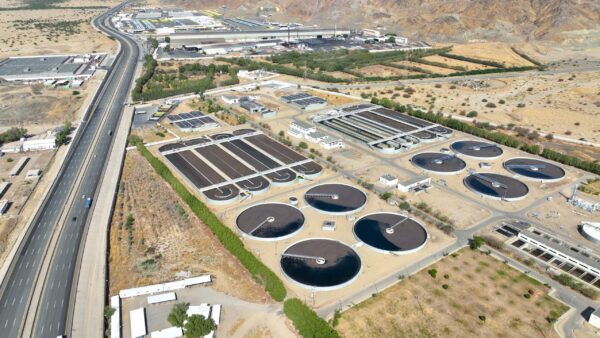
August 27, 2025 | Articles

Accurate, current data drives the success of construction programs, especially the largest and most complex programs. However, since even relatively small programs create massive amounts of data, effective data collection and management can be a challenge. To access and leverage the benefits of good data, program managers can and should tailor their data collection processes to the unique conditions of their program. A collaborative approach at the outset of a program can help establish customized data collection processes by:
Defining & Prioritizing Available Data
Program-wide data encompasses forecasted budgets and actual costs, project schedules, scopes, material specifications, environmental protection data, sustainability markers, stakeholder feedback, safety performance, and more. When multiplied by all of the individual projects within a program, program-wide data can feel dizzying.
Program management consultants can help owners make dizzying data more manageable by defining and prioritizing data during program planning. This enables the efficient collection and management of specific data sets, reducing administrative costs, facilitating the development of key performance indicators and overall program tracking, and helping ensure that decision makers have access to the right data to make informed decisions throughout a program’s life cycle.
In addition to the vast amounts of relevant and valuable data that a program team should gather, there are also distractions. This “noise” consists of less relevant information that can overwhelm program teams with unnecessary collection, processing, and storage efforts without any strategic benefit.
Owners can work with program managers to clearly define the types of data required for their program, the purpose behind collecting particular data, who will receive related reports, and how the program team intends to leverage the information.

Clarifying Data Production & Ownership Responsibilities
In defining and prioritizing the data available on a program, program managers can also help owners plan organizational data management responsibilities. A program manager who understands the nuances of construction management and project controls—as well as the types of data produced at these and other levels throughout a program organization—is best suited for this role.
By defining data management responsibilities at the outset, owners can establish clear requirements and procedures for managing data. This fosters accountability and allows for the enforcement of contractual obligations. Additionally, owners can collaborate with their program management team to design data management plans. This proactive approach helps prevent common data management challenges, such as misaligned data collection priorities, unrealistic expectations, and untrained staff. A clear understanding of who holds the rights to certain data sets is also crucial at a program’s conclusion, when different stakeholders may require access to data they do not own.
As a general rule, program staff that regularly engage with certain data sets are best suited to manage that data. For example, estimators, schedulers, and project engineers each have unique responsibilities on a program. These professionals should be responsible for managing cost data, milestone dates, and contract specifications, respectively. By empowering team members to take ownership of the data relevant to their functions, program organizations can enhance data accuracy, streamline processes, and improve overall project outcomes. Fostering a culture of data stewardship among specialized staff also helps ensure that other stakeholders have access to the critical information they need, contributing to better decision-making and successful program management.
Selecting the Right Tools
A variety of software solutions exist for program-wide data management. This program management information system (PMIS) technology facilitates the collection, sorting, storage, and reporting of data. As each available PMIS has its pros and cons, owners should consult with an experienced program manager who can identify which PMIS is most suited for their construction program based on its data management, project controls, and/or construction management needs. For instance, on Phoenix Sky Harbor International Airport’s Capital Improvement Program, we have used Oracle’s Primavera Unifier for more than a decade. The software’s flexibility and adaptability have proven essential for managing complex projects and accommodating diverse reporting needs across the program.
Once a software is selected, program managers can help set up the PMIS, manage access, and implement training. This includes customizing reports to provide the right data to the right recipients at the right time based on the owner’s established data collection and management priorities.
In addition to software, business processes can help make data management a breeze or a pain point. At a minimum, formal data management processes should include regular training for staff and regular validation to prevent outdated data, poor data collection practices, or critical program decision-making based on the aforementioned. A formal testing phase can help ensure staff understand data management processes at the outset of a program. More importantly, regular reviews of data management processes throughout a program’s life cycle will determine their continued relevance, allowing teams to eliminate redundant or outdated processes and create new ones as needed.
Data-Delivered Program Success
Owners that collaborate with their program management staff to define and prioritize their available data at the outset of a program, clarify data production and ownership responsibilities early, and select the right software and processes to manage data will collect more accurate and timely data. No matter what a program comprises, better data will drive better decision making, lead to more reliable project controls, and contribute to overall program success.

About the Author
Martin Lopez serves as Senior Director, Program Management at Hill International, Inc. He has 38 years of experience in global program and project management, project controls, and construction claims. His key experience includes the $2 billion Capital Improvement Program at Phoenix Sky Harbor International Airport and the $5.2 billion Panama Canal Expansion. He is a registered civil engineer in California. Martin can be reached at [email protected].
Share

August 27, 2025 | Articles

August 12, 2025 | Articles
Hill Welcomes Ben Schwenk as Senior Vice President in the Kingdom of Saudi Arabia

July 27, 2025 | Articles
The Infrastructure Puzzle: Robert Regalado’s Wholistic Business Development Approach

July 13, 2025 | Articles
Tech-Forward Contracting: A Much-Needed Construction Solution

June 23, 2025 | Articles
Jeffrey Hurley Joins Hill’s Northern California Rail Practice

June 23, 2025 | Articles
Ready, Set, Grow: First VP Chad Koelling Takes Charge of Hill’s Mountain West Region

June 8, 2025 | Articles
PMO in Saudi Arabia: The Holistic Approach to Realizing a National Mega-Portfolio